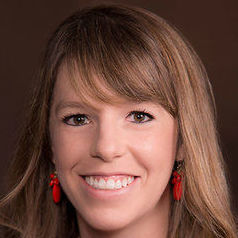Women Faculty in Agricultural Disciplines Continue to Face Sexism, Study Finds
Posted on Apr 24, 2019 | Comments 0
 According to a new study from a West Virginia University researcher, sexism is still pervasive among agriculture faculty, despite improvements in gender equity over the past 15 years.
According to a new study from a West Virginia University researcher, sexism is still pervasive among agriculture faculty, despite improvements in gender equity over the past 15 years.
The new research is an update to a study conducted in 2003, in which a nationwide survey was sent to women faculty at land grant institutions and universities with an agricultural education or extension program. The survey included five questions that helped researchers gain perspective into the faculty’s educational and professional background, current and professional status, mentoring, professional treatment, and demographics.
On the positive side, women agriculture faculty reported having excellent mentoring opportunities, regardless of their mentors’ gender. However, despite these results, the respondents still felt that sexism was prevalent among their respective agriculture departments. These sexist behaviors include toxic work environments, unhealthy competition, inappropriate interactions, and policy violations.
“Unfortunately, there were also really nasty, kind of shocking comments that we really hoped we weren’t going to see,” said Dr. Haley Rosson, an assistant professor of agriculture and extension education at WVU. “One faculty member said she’d been called beautiful more times than she had been called smart.”
Dr. Rosson was inspired to research sexism among agriculture faculty after experiencing sexist behaviors during her tenure as an agriculture and extension scholar.
“Although I was the person they were looking for, callers would repeatedly request to speak with a man,” said Dr. Rosson. “That was the first time that I directly dealt with that. Being in those kind of gender specific roles, I was continually trying to shatter those stereotypes and thinking yes, a woman can be in an ag position and know just as much as her male counterparts.”
According to Dr. Rosson, it’s important to create a culture of inclusivity, collaboration, and positivity for agriculture faculty members regardless of gender. “If we are just willing to have those conversations and be on the same playing field, I really think that is what we can achieve,” she said.
Dr. Rosson holds a bachelor’s degree in interdisciplinary agricultural leadership and a master’s degree in agricultural education both from Texas Tech University, as well as a Ph.D. in agricultural education from Oklahoma State University.
Filed Under: Research/Study








